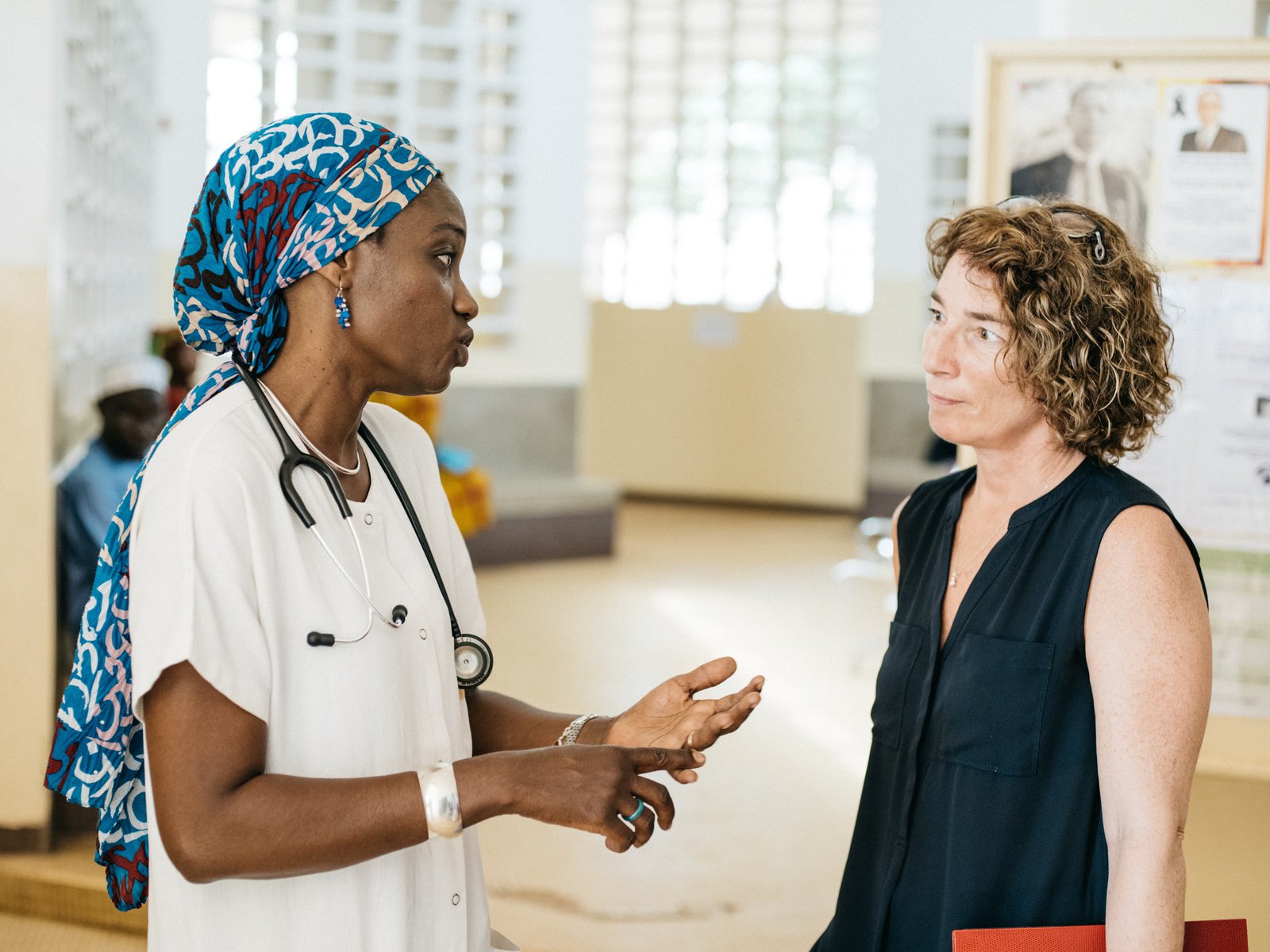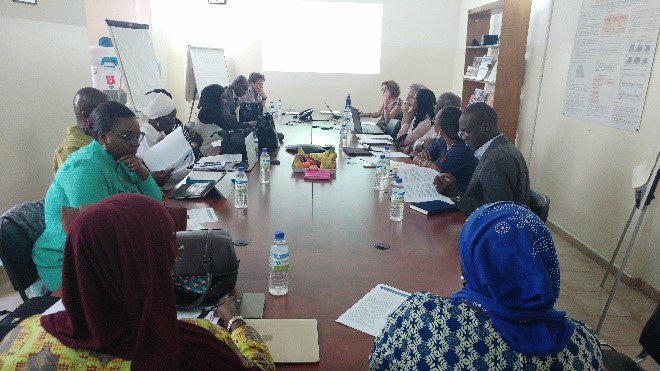Editor’s note: The author of this article participated in the GSK PULSE volunteer program. While PATH does not have its own volunteer program, we partner with companies in many ways to match their core expertise and interests to PATH’s needs—through everything from “loaned talent” programs to company-wide fundraising campaigns. Interested in partnering with PATH in some way? Contact our Corporate Engagement team.
I remember vividly the day I landed in Dakar in June 2016—the heat, the sand, the vibrant colors. I was on my way to a new six-month volunteer assignment at PATH in Senegal.
As my black and yellow taxi made its way through the streets of Dakar, I found myself wondering whether noncommunicable diseases (NCDs), like diabetes and hypertension, could really be a health priority in a country already challenged by infectious diseases, such as malaria.
Now, as I wrap up my assignment, I know that despite the challenges and competing health needs, Senegal is already well engaged in the fight against chronic diseases.
Change maker
As a PULSE volunteer from GSK Canada, I was “embedded” in PATH’s Senegal office to help solidify PATH’s knowledge, expertise, and technical skills into a strong NCD portfolio, and to collaborate with stakeholders to create a new partnership model that can support and accelerate Senegal’s efforts to address NCDs.
PULSE is a skills-based volunteering initiative through my employer, GSK. When I signed on to volunteer through this program, the prospect of working abroad on the ground with other dedicated health care professionals truly excited me. Throughout my career, I have seen how the power of working together can create a catalyst for change.
New plans and priorities

Dr. Maimouna Ndour Mbaye, a diabetes specialist (L), speaks with Hélène Pineau at the Marc Sankale Diabetes Center. Photo: PATH/Gabe Bienczycki.
Initial meetings with Senegal’s health leaders helped me see that while the country is hampered by a lack of resources, they recognize the growing burden of NCDs on their citizens and their health systems and have made NCDs a top health priority. For example, the government is implementing a national NCD plan through a new health division created specifically to address chronic diseases. This is an encouraging shift for a health system that was organized to respond to infectious diseases and acute care needs.
It’s clear that many Senegalese also are taking their health into their own hands as they become more aware of the threat of NCDs. While I was in Senegal, I saw many people walking or running on La Corniche, the ocean-view esplanade that circles Dakar. The Sunday morning walking club is also growing in popularity.
The power of partnerships to act now

In Senegal, PATH led the first meeting of a new public-private coalition addressing the need for better care and prevention of NCDs. Photo: GSK/Rima El-Rifi.
In November, PATH led Senegal’s first roundtable meeting of a new public-private coalition called “ACT NOW: Better Care for NCDs” that draws together representatives from the Ministry of Health, the private sector, health organizations, civil society organizations, and potential financial backers.
PATH has made significant strides in the development of its strategy to address NCDs in Senegal over the past two years. The development and implementation of ACT NOW is an important milestone. The initial meeting was an opportunity to gain additional insights, strengthen the concept, engage partners and health authorities and, importantly, establish PATH as a leader in the fight against NCDs in Senegal and West Africa.
ACT NOW demonstrates the catalytic power of a public-private partnership model where multisector stakeholders work on mutually beneficial initiatives. Together, we’re building a coalition that can be a trusted partner for Senegal’s health authorities and support the country’s efforts to raise awareness of NCDs. We also will help mobilize resources to create a multidisciplinary, integrated continuum of patient care—from education and prevention to early diagnosis, treatment, and management—and to strengthen the knowledge and capacity of primary care health workers at the local and regional levels.
The contributions of GSK’s PULSE Volunteer Partnership to PATH in Senegal have been significant: through the support of three GSK PULSE Volunteers, including myself, we have helped strengthen project management capabilities, advocacy and stakeholder management expertise, and build a sustainable NCD road map for PATH in Senegal.
This is an example of what two innovative leaders can do when they come together. We can help others and accelerate health impact by building on a shared value partnership that brings together GSK’s resources and expertise with PATH’s technical know-how and deep country experience.
The opportunity ahead

A patient meets with a diabetes health care provider at the Marc Sankale Diabetes Center. Photo: PATH/Gabe Bienczycki.
The ever-present challenge of sustainability remains. PATH is establishing and convening innovative partnerships with organizations that are new at working together, developing sustainable and strong partnerships that help diversify and mobilize resources. I know that in Senegal, collaboration with health authorities is paving the way for sustainable change and shared value.
And I am confident that continued and coordinated efforts will help shift priorities on the health agenda to ensure adequate resources to combat NCDs.
On a personal note
If I had a box just for wishes, I would wish for everyone in Senegal to have access to a solid and sustainable continuum of health care and services, so that this beautiful country can grow and lead the fight against NCDs in West Africa.



